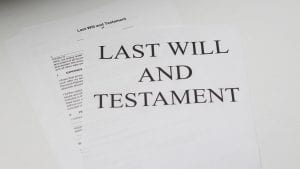Remember to seek advice from legal professionals to ensure that your choice aligns with legal requirements and best practices in estate planning.
Planning your estate involves many important decisions, but none is more critical than selecting the right person to be your executor. The executor is the linchpin who will ensure your wishes are carried out and your assets are managed according to your desires after you’re gone. To help you feel more confident in selecting who will fill this vital role, here are several key pieces of advice.
Consider Trustworthiness and Integrity
When selecting an executor, prioritize someone you can absolutely trust—this person will be handling your most sensitive financial matters and ensuring your final wishes are honored. Look for a candidate who embodies integrity and has a proven history of honesty and reliability. This might be a close family member, a longstanding friend, or even a professional advisor who has demonstrated unwavering ethical standards. It’s essential that the person you choose is not only upright but also diligent and organized, as they will need to manage a range of complex tasks, from filing tax returns to adhering to legal requirements and communicating effectively with beneficiaries. Trustworthiness and integrity aren’t just desirable traits—they’re essential for safeguarding your legacy.
Evaluate Organizational Skills
Managing an estate is no small feat and requires a high degree of organizational expertise. Your executor needs to be very detail-oriented, keeping meticulous records and staying on top of deadlines and tasks. This includes everything from filing necessary tax returns to ensuring that all assets are properly inventoried and distributed according to your will. They must coordinate with attorneys, accountants, and financial planners, ensuring that every legal and financial requirement is met. It’s more than just paperwork; it’s about juggling multiple responsibilities and communicating effectively with beneficiaries throughout the process. Choosing someone with a proven track record of handling significant responsibilities and complex projects efficiently can provide peace of mind that your estate will be managed smoothly.
Assess Financial Literacy
Handling an estate inevitably involves financial responsibilities, so your executor should possess sound financial literacy. They’ll be tasked with managing assets, paying outstanding debts, filing tax returns, and distributing the estate according to your wishes. Your executor doesn’t need to be a financial whiz, but they should feel at ease working with financial documents and professionals like accountants and attorneys. It’s important that they can make sense of balance sheets, understand basic investment principles, and manage expenditures in a way that honors your financial legacy. This ability can help prevent costly mistakes and ensure a smooth process for your beneficiaries. In short, choose someone who is not only comfortable with numbers but also acutely aware of the gravity of their fiduciary duties.
Consider Availability and Commitment

Being an executor is a significant responsibility that requires a considerable investment of time and effort, especially during the probate process, which can often extend over several months or even years. It’s crucial to choose someone who genuinely has the bandwidth to handle these duties without feeling overwhelmed. Discuss the specifics of the role with your potential executor upfront to ensure they understand the scope of the responsibilities—including managing court filings, coordinating with attorneys and accountants, and maintaining open lines of communication with beneficiaries. Besides availability, gauge their willingness to commit to this often complex and time-intensive role; it’s not just about having spare time, but also the dedication to see the process through meticulously. By confirming their readiness and commitment, you can have peace of mind knowing your estate will be managed with the attention and care it deserves.
Choose Someone Who Gets Along with Beneficiaries
Selecting an executor who meshes well with your beneficiaries can be a game-changer in preventing unnecessary conflicts and misunderstandings. While it might not always be feasible, choosing someone respected and trusted by all parties involved can pave the way for smoother estate administration. A considerate and tactful executor can defuse potential disputes gracefully, ensuring that asset distribution occurs without friction. Beyond just managing financial and legal duties, an effective executor acts as a mediator, maintaining peace and fostering open communication among beneficiaries. It’s worth considering family dynamics and interpersonal relationships when making your choice—someone who naturally garners respect and commands trust can administer your wishes more effectively. This thoughtful selection can help ensure that the emotional and relational aspects of your estate are handled as carefully as the financial ones.
Seek Guidance from Legal Professionals
It’s a wise move to consult with a seasoned will attorney when selecting your executor. Employing specialized will attorney services can offer invaluable insights tailored to your specific situation, guiding you through the intricacies of state laws and ensuring all your legal bases are covered. They can help you understand detailed aspects such as the executor’s legal responsibilities, potential conflicts of interest, and any special provisions you might want to include in your will. Additionally, a legal expert can provide clarity on the more technical aspects of estate planning, like tax implications and the management of unique assets. By leveraging their expertise, you can make an informed, confident decision that aligns with both your personal wishes and legal requirements, ultimately safeguarding your legacy and providing peace of mind for you and your beneficiaries.
In conclusion, choosing the best executor for your estate is a crucial decision that requires careful consideration. By assessing qualities such as trustworthiness, organizational skills, financial literacy, availability, and compatibility with beneficiaries, you can select an executor who will effectively manage your estate according to your wishes. Remember to seek advice from legal professionals to ensure that your choice aligns with legal requirements and best practices in estate planning.


Join the conversation!